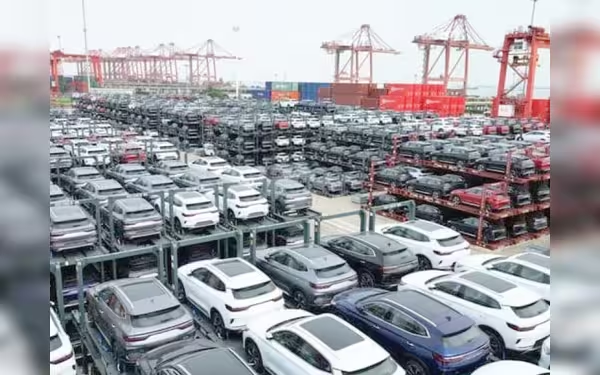Saturday, November 16, 2024 05:40 PM
Auto Sector Struggles Despite Sales Growth in Pakistan
- Auto industry faces rising costs and supply chain issues.
- Inflation impacts consumer vehicle affordability.
- Collaboration needed for sustainable industry growth.
 Image Credits: tribune.com.pk
Image Credits: tribune.com.pkDespite rising sales, Pakistan's auto sector faces significant challenges, including rising costs and inflation affecting consumer affordability.
The auto industry in Pakistan has been a significant contributor to the country's economy, providing jobs and facilitating transportation. However, despite a recent uptick in sales, the sector is facing serious challenges. According to the Pakistan Automotive Manufacturers Association (PAMA), the data reveals that the situation is far from satisfactory. This raises concerns about the future of the industry, which is built on four main pillars: trucks and buses, tractors, motorcycles, and passenger cars.
Analysts, including auto sector expert Mashood Khan, have pointed out that the current state of the auto industry is alarming. The increase in sales figures may seem promising at first glance, but it does not tell the whole story. Many manufacturers are grappling with rising costs, supply chain disruptions, and fluctuating demand. These factors create an uphill battle for the industry, making it difficult for companies to maintain profitability.
Furthermore, the challenges are compounded by the economic climate in Pakistan. Inflation and currency devaluation have made it harder for consumers to afford new vehicles, leading to a decline in overall market confidence. As a result, even with better sales numbers, the auto sector is not out of the woods yet.
While the auto industry in Pakistan may be experiencing some growth in sales, it is essential to recognize the underlying issues that threaten its stability. Stakeholders must work together to address these challenges, ensuring that the industry can thrive in the long run. The future of the auto sector is not just about numbers; it is about creating a sustainable environment that supports both manufacturers and consumers alike.













